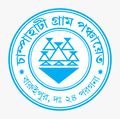Liquid Waste Management: A Decentralized Approach in Champahati Gram Panchayat
Liquid Waste Management
Sagnik Mondal
8/1/20243 min read


Effective liquid waste management is a crucial component of sustainable community development, particularly in rural and semi-urban areas where infrastructure may not be as advanced. Poor management of liquid waste, including greywater and sludge, can lead to severe environmental degradation and pose significant health risks to residents. Recognizing the need for a robust system to address these challenges, the Champahati Gram Panchayat has initiated a liquid waste management project funded by the Swachh Bharat Mission (SBM). This project focuses on decentralized greywater management, utilizing innovative solutions such as drain water treatment, tubewell excess water treatment, and community soak pits, ensuring that liquid waste is managed efficiently and sustainably.
The Necessity of Liquid Waste Management
Liquid waste, particularly greywater, is generated from households, commercial establishments, and agricultural activities. Greywater includes wastewater from sinks, baths, washing machines, and other domestic sources, excluding sewage. If not properly managed, greywater can become a breeding ground for mosquitoes, spread waterborne diseases, and contaminate groundwater, leading to serious public health and environmental issues.
Effective liquid waste management is essential for several reasons. Firstly, it helps prevent the contamination of local water bodies, which can lead to the degradation of ecosystems and the loss of aquatic life. Secondly, managing greywater and sludge effectively reduces the risk of waterborne diseases, which are prevalent in areas with poor sanitation. Thirdly, proper management of liquid waste contributes to the conservation of water resources, as treated greywater can be reused for irrigation and other non-potable purposes, reducing the demand for fresh water.
Decentralized Greywater Management in Champahati
The Champahati Gram Panchayat has taken a decentralized approach to managing greywater and other forms of liquid waste. Decentralized waste management refers to the treatment and disposal of waste close to the source of generation, as opposed to centralized systems that rely on large-scale infrastructure. This approach is particularly effective in rural and semi-urban areas like Champahati, where centralized infrastructure may be lacking or insufficient.
1. Drain Water Treatment
One of the key components of the project is the treatment of drain water. Drains in residential areas often carry greywater mixed with stormwater, which can cause pollution if discharged untreated into the environment. The Panchayat has implemented systems to treat this water before it is released. This involves filtration and sedimentation processes that remove contaminants and improve the quality of the water, making it safe for reuse or discharge into local water bodies.
2. Tubewell Excess Water Treatment
Tubewells are a common source of water in rural areas, but excess water from tubewells can lead to waterlogging and contamination of surrounding areas if not managed properly. The Panchayat’s project includes systems to collect and treat this excess water, ensuring that it does not contribute to environmental degradation. Treated water can be redirected for agricultural use or safely recharged into the groundwater, contributing to water conservation efforts.
3. Community Soak Pits
Another innovative aspect of the project is the use of community soak pits, which connect 2 to 3 households at a time. Soak pits are simple, cost-effective systems that allow greywater to percolate into the ground, where it is naturally filtered by soil and roots. This method not only prevents waterlogging and the accumulation of stagnant water but also recharges the groundwater table, supporting the local water cycle. By connecting multiple households to a single soak pit, the Panchayat can manage greywater efficiently and sustainably at the community level.
Community Involvement and Outreach
The success of the liquid waste management project in Champahati relies heavily on community involvement. The Panchayat is actively encouraging residents to connect with the project and take advantage of the solutions being offered. By working together, the community can effectively address greywater issues, improving public health and the environment. Regular awareness campaigns, workshops, and technical support are provided to ensure that households understand the importance of proper liquid waste management and how they can contribute to the project’s success.
Conclusion
The decentralized liquid waste management project initiated by the Champahati Gram Panchayat is a significant step towards ensuring environmental sustainability and public health in the region. By focusing on greywater management through innovative solutions like drain water treatment, tubewell excess water treatment, and community soak pits, the Panchayat is addressing the liquid waste challenges practically and sustainably.
The use of SBM funds and the Panchayat’s direct supervision of the project demonstrate a commitment to leveraging available resources for the benefit of the community. This project not only provides a solution to the immediate greywater management needs of Champahati but also serves as a model for other regions facing similar challenges. Residents are encouraged to connect with the Panchayat to solve their greywater problems, contributing to a cleaner, healthier, and more sustainable environment for all.
Our Focus
Empowering Champahati through development and progressive initiatives.
Contact information
receive latest Updates
© 2024. All rights reserved.
